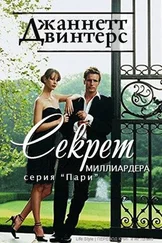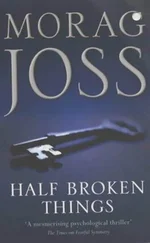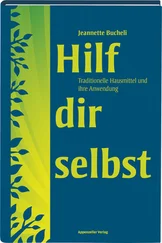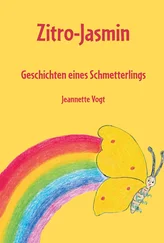The way Mom saw it, women should let menfolk do the work because it made them feel more manly. That notion made sense only if you had a strong man willing to step up and get things done, and between Dad’s gimp, Buster’s elaborate excuses, and Apache’s tendency to disappear, it was often up to me to keep the place from falling apart. But even when everyone was pitching in, we never got out from under all the work. I loved that ranch, though sometimes it did seem that instead of us owning the place, the place owned us.
We’d heard about electricity and how some big cities back east were wired with so many glowing lightbulbs that it looked like daytime even after the sun had set. But those wires had yet to reach west Texas, so you had to do everything by hand, heating irons on the stove to press Mom’s blouses, cooking cauldrons of lye and potash over the fire to make soap, working the pump, then toting clean water in to wash the dishes and dirty water out to pour on the vegetable garden.
We’d also heard about the indoor plumbing they were installing in fancy houses back east, but no one in west Texas had it, and most people, including Mom and Dad, thought the idea of an indoor bathroom was vile and disgusting. “Who in the Lord’s name would want a crapper in the house?” Dad asked.
SINCE I GREW UPlistening to Dad, I always understood him completely, and when I turned five, he had me start helping him train the horses. It took Dad six years to train a pair of carriage horses properly, and he had six teams going at all times, selling off one team a year, which was enough to make ends meet. A team had to be perfectly matched in size and color, with no irregularities, and if one horse had white socks, the other needed them as well.
Of the six pairs of horses we’d have, Dad let the yearlings and two-year-olds simply run free in the pasture. “First thing a horse needs to learn is to be a horse,” he liked to say. I worked with the three-year-olds, teaching them ground manners and getting them to accept the bit, then helped Dad harness and unharness the three pairs of older horses. I’d drive each pair in a circle while Dad stood in the middle, using a whip to drill them, making sure they lifted their feet high, changed gaits in unison, and flexed their necks smartly.
Everyone who spent time around horses, Dad liked to say, needed to learn to think like a horse. He was always repeating that phrase: “Think like a horse.” The key to that, he said, was understanding that horses were always afraid. The only way they could save themselves from mountain lions and wolves was to kick out and run, and they ran like the wind, racing one another, because it was the slowest horse in the herd that got taken down by the predator. They were all the time looking for a protector, and if you could convince a horse that you’d protect him, he would do anything for you.
Dad had a whole vocabulary of grunts, murmurs, clucks, tocks, and whistles that he used to speak with horses. It was like their own private language. He never flogged their backs, instead using the whip to make a small popping sound on either side of their ears, signaling them without ever hurting or frightening them.
Dad also made tack for the horses, and he seemed happiest sitting by himself, humming at his sewing machine, working the foot pedal, surrounded by hides, shears, cans of neat’s-foot oil, spools of stitching threads, and his big saddler’s needles, no one bothering him, no one feeling sorry for him, no one scratching their heads trying to figure out what it was he wanted to say.
I was in charge of breaking the horses. It wasn’t like breaking wild mustangs, because our horses had been around us since they were foals. Most times I simply climbed on bareback-if the horse was too skinny, its spine sometimes rubbed a raw spot on my behind- grabbed a handful of mane, gave them a nudge with my heels, and off we went, at first in awkward fits and starts, with a little crow hopping and swerving while the horse wondered what in tarnation a girl was doing on his back, but pretty soon the horse usually accepted his fate and we’d move along right nicely. After that, it was a matter of saddling him up and finding the best bit. Then you could set about training him.
Still, particularly with a green horse, you never knew what to expect, and I got thrown plenty, which terrified Mom, but Dad just waved her off and helped me up.
“Most important thing in life,” he would say, “is learning how to fall.”
Sometimes you fell in slow motion. The horse stumbled or shied, your weight got thrown forward, and you ended up hugging the horse’s neck, your feet losing their lock in the stirrups. If you couldn’t right yourself, your best bet was to let go and roll off to the side, then keep rolling once you hit the ground. The dangerous falls were the ones that happened so fast you didn’t have time to react.
Dad once bought this big gray gelding for a song. The horse had been in the U.S. Cavalry, and since he was government-issue, Dad named him Roosevelt. Maybe it was because Roosevelt had been fed too much grain, maybe because he’d heard too many bugle calls and too many cannons fired, or maybe he was just born a worrier, but for whatever reason, he was one spooky horse. Roosevelt was beautiful to look at, with dappled hindquarters and dark legs, but sudden noises or movement made him jump up like a jackrabbit.
Shortly after we got Roosevelt, I was riding him back to the barn when a hawk swooped down in front of us. Roosevelt spun around and I was flung off him like a rock out of a slingshot. I tried to break the fall with my arm and ended up snapping my forearm clean in two. The jagged ends of the bones were poking up, making a bulge under my skin. Dad was always telling me I was one tough nut, but with my arm bent and dangling like that, danged if I didn’t start bawling like a little girl.
Dad carried me into the kitchen, and when Mom saw me, she got so upset she started gasping for breath, telling Dad when she could get the words out that a little girl like me had no business breaking horses. Dad told Mom she had best leave until she could get control of herself, and she went into the bedroom, closing the door behind her. Dad set the bone and had Lupe cut strips of linen while he made up a paste of chalk, gum, eggs, and flour. Then he wrapped the linen strips around my arm and smeared them all over with the paste.
Dad took me in his arms and we set on the porch looking at the distant mountains. After a while, I stopped crying because there just wasn’t any cry left in me by then. I sat there with my head on my shoulder like a little bird with a broken wing.
“Dumb horse,” I finally said.
“Never blame the horse,” Dad said. “It’s just something he learned along the way. And horses aren’t dumb. They know what they need to know. Matter of fact, I always figured horses are smarter than they let on. Kind of like the Indians who pretend they can’t speak English because no good ever came from talking with the Anglos.”
Dad told me I’d be back in the saddle in four weeks, and I was. “Next time,” Dad said, “don’t try to break a fall.”
“Next time?” Mom asked. “I trust there won’t be a next time.”
“Hope for the best and plan for the worst,” Dad said. “Anyway,” he told me, “once you’re going down, accept it and let your rump take the punishment. Your body knows how to fall.”
Meanwhile, Dad enrolled Roosevelt in what he called Adam Casey’s School for Wayward Horses. He tied Roosevelt’s head to his tail and left him to stand in a stall until he learned patience. He filled empty tin cans with pebbles and tied those to his mane and tail until Roosevelt got used to commotion.
Once Roosevelt was reformed-more or less-Dad sold him at a nice profit to some easterners bound for California. While Dad didn’t blame horses for anything, he wasn’t sentimental about them, either. If you can’t stop a horse, sell him, Dad liked to say, and if you can’t sell him, shoot him.
Читать дальше









